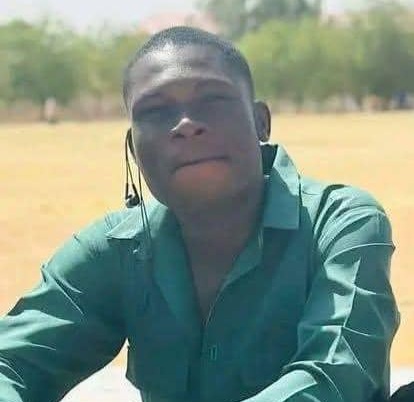Minister of Marine and Blue Economy, Adegboyega Oyetola, on Thursday, in Lagos revealed that Nigerian Maritime Administration and Safety Agency (NIMASA), in partnership with stakeholders in the maritime sector, had finalised arrangements for the disbursement of the $350 million (N525 billion) Cabotage Vessel Financing Fund (CVFF).
Oyetola said the port rehabilitation projects by Nigerian Ports Authority (NPA), were expected to generate over 20,000 jobs. He said seaports modernisation was a top priority of the Tinubu administration.
The minister added that the government was extending necessary support to private investors to encourage participation in greenfield port projects, like Badagry, Ilaje, Olokola, Agge, Ibaka, Burutu, Snake Island, and Bakassi deep sea ports, as well as the development of river ports and jetties across the country.
Oyetola made the assertions at an interactive session with editors of print media organisations in Lagos.
He explained that disbursement of CVFF would assist indigenous shipping operators in acquiring new vessels and enhancing capacity.
Nigeria is estimated to be losing a whooping N1 trillion annually to the non-disbursement of the CVFF.
Section 44, part VIII, of the Cabotage Act 2003 provides for the establishment of the Cabotage Vessel Financing Fund (CVFF), and a two per cent deduction on cabotage-protected trade earnings goes into the savings for the development of indigenous tonnage (ships) in Nigeria.
Oyetola stated that his ministry was facilitating the development of an appropriate template to ensure transparency and accountability in the disbursement of the fund. He added that efforts were on to bring development banks into the disbursement process.
“I am glad to inform you that NIMASA is working on this and has almost completed the process,” he stated.
Oyetola said inland dry ports were being developed across the country to enhance trade facilitation. He pointed out that the ports served as cargo handling and clearance hubs, which helped to improve logistics efficiency and ease access to international markets.
He explained, “Recently, the Funtua Dry Port in Katsina State was commissioned. Also, similar facilities in Kano and Kaduna are already supporting trade operations.
“Dry port development in Abia, Plateau, and Borno states are at various stages of development, to further strengthen the nation’s trade infrastructure. Additional dry ports in Oyo, Ogun, and other states are planned.”
Oyetola said the ministry was working closely with the Federal Ministry of Transportation and the Federal Ministry of Works to rehabilitate internal access roads and improve port connectivity, in order to reduce congestion and transit time.
He stated, “Furthermore, we are leveraging the Lagos-Calabar Coastal Highway to drive blue tourism, support fisheries industries, and promote eco-tourism.
“To further enhance trade facilitation, the government is implementing the National Single Window (NSW) project.
“This digital platform will streamline trade compliance processes, link ports with relevant government agencies and stakeholders, and create a seamless, efficient system.”
The minister said the maritime sector had a huge potential to contribute to the country’s Gross Domestic Products (GDP).
He stressed that the blue economy comprised activities, such as maritime shipping, shipbuilding and repairs, ports infrastructure and services, and coastal tourism. Others, he said, included fishing and aquaculture; blue/renewable energy; seabed mining; underwater cabling; marine biotechnology (pharmaceuticals and chemicals); and water desalination.
Oyetola commended President Bola Tinubu for creating a dedicated ministry for the marine and blue economy. He said the strategic initiative reflected the president’s determination to unlock the vast potential of marine resources, expand opportunities beyond land-based development, and establish the sector as a key driver of national prosperity in line with Africa’s Agenda 2063.
He added, “The vision is for the ministry to ensure that the country’s marine resources are harnessed sustainably to position Nigeria as a premier maritime nation.
“To lay a solid foundation for the vision, the ministry has taken deliberate steps to strengthen the regulatory, legal, institutional, and policy frameworks for the management and development of the sector. We have painstakingly devoted attention to the crafting of a sound policy framework to govern and direct the sector.
“We have ensured that both the process and outcomes are given diligent attention. Our approach has been to guarantee a comprehensive and holistic national policy for the sector.”
Oyetola stated that a major strategy in that regard was the adoption of a multi-layered broad-based stakeholders’ engagement and consultation with eminent sector groups (World Bank, NESG, AU-IBAR, WorldFish, etc.).
He said in partnership with the African Union Inter-African Bureau for Animal Resources (AU-IBAR) and the Kingdom of Norway, the marine and blue economy ministry had concluded the development of Nigeria’s National Blue Economy Strategy document.
Oyetola also said the ministry’s National Draft Policy for Marine and Blue Economy was ready for presentation to the Federal Executive Council for approval. He stressed that the policy had taken note of the need to leverage technology and private sector initiatives to boost the sector.
According to Oyetola, “It has also been distilled into a 10-Year Roadmap to guide its implementation. Even though we have dwelt deliberately and extensively on the crafting of an enduring policy framework, our attempts to rejig and reform the sector have not passed without notice.
“I am also glad to inform you that the ministry and its agencies were recognised and commended as exceptional by the Presidential Enabling Business.
“As you may be aware, the Federal Executive Council last week approved the award of a contract for the Modernisation of the Western Ports (Lagos Port Complex, Apapa and Tin-Can Island Port Complex, Apapa) with a completion period of 48 months.
“The modernisation of seaports remains a top priority of this administration. The procurement process for the modernisation of the Eastern Ports is being fast-tracked. The goal is to ensure that our port system collectively becomes the transhipment hub for the sub-region.
“When the modernisation is completed, the draft of our port will be 16 – 17 meters. It is currently 12 – 13 meters. This will allow bigger vessels to berth and reverse the revenue loss to the neighbouring ports of Tema, Lome, and Cotonou. These port rehabilitation projects by NPA are expected to generate over 20,000 jobs.”
The minister also explained, “To bridge the infrastructure gap, the ministry is promoting Public-Private Partnership (PPP) to attract private-sector investment in port modernisation, channel dredging, automation, inland waterways development, ferry/cruise services, cargo handling equipment deployment, terminal operations, and technological innovation.”
Eromosele Abiodun
Follow us on:




 1 week ago
29
1 week ago
29








 English (US) ·
English (US) ·